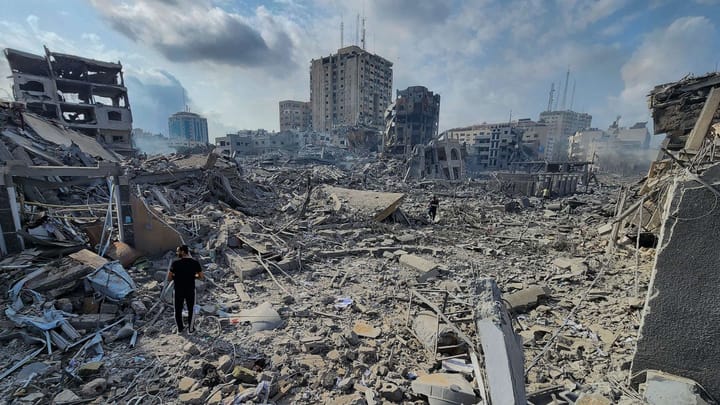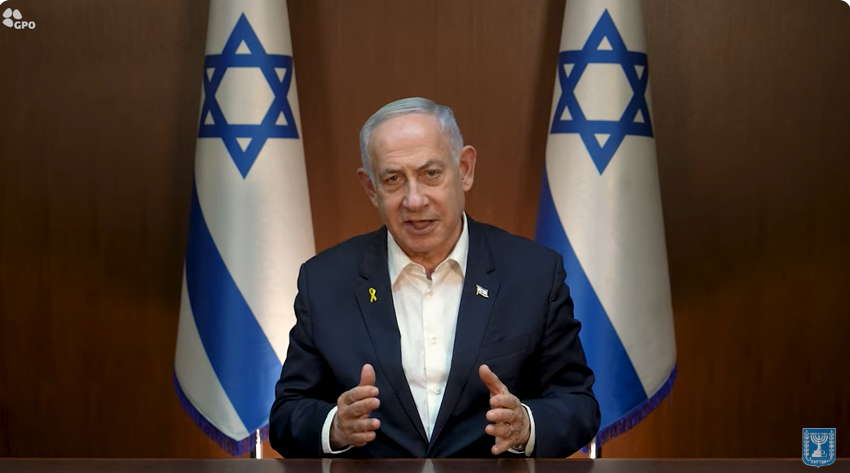Hamas Condemned by Prominent Islamic Scholar in Gaza

A leading Islamic law authority in Gaza has reiterated that the term jihad is conditioned on specific principles that must be met before it can be permitted. The term, which means "struggle" in Arabic, has different connotations, including a military struggle against unbelievers and a personal struggle for spiritual improvement.
According to Professor Dr. Salman al-Dayah, when the fundamental conditions of jihad are not met, it is best to avoid starting a struggle. This is premised on a teleological notion that weighs the impacts of an unavoidable jihad on people's lives and properties. In other words, when an authority realizes that a military jihad will lead to outcomes that will be disproportionately detrimental for all, it is better to avoid the war - unless the lives in question are urgently endangered.
Based on this, Dr. Dayah became the first leading figure from Gaza to condemn Hamas' October 7 attacks on Israel.
This is in the context of Hamas' ruthless policy of executing "collaborators" during their wars with Israel. Such gruesome, brutal killings of accused collaborators in wartime have put immense fear in the people of Gaza. Hence, it was only logical that most Gazans are gagged and cannot express their opposition to the current Gaza War, which can end immediately with Hamas handing over Israeli hostages and surrendering.
Professor Dayah is one of the few senior figures on the Strip who still have the power and will to confront the Hamas government. The fatwa is non-binding but synthesizes relevant concepts and principles of the Quran and Sunnah. Gaza's two million population is primarily Sunni Muslims. As such, they will likely take counsel from Dr. Dayah's rulings.
The six-page fatwa criticized Hamas for violating the fundamental principles that govern jihad. Dr. Dayah identifies that it was clear and straightforward in October 2023, that the conditions were not sufficient to warrant a jihad. At the same time, the damage that would be aroused from an extreme attack was apparent for all Hamas and Gazan leaders to grasp.
He cites the high death toll and destruction after the October 7 attacks as a sign that the massacre was outside the laws of the Quran and Sunnah. In other words, if the pillars of jihad were met, fewer people would have been killed, and the humanitarian aftermath would have been manageable.
Furthermore, the fatwa identifies Hamas' failure in preventing fighters from launching attacks from civilian shelters, knowing they would be attacked militarily. This confirms Hamas' culpability in using defenseless Gazan civilians as human shields as an act that is contrary to the fundamental role of a legitimate ruling authority in Islam.
In effect, this fatwa marks a turnaround in reactions to a conflict that has seen so many Gazans suffer tremendously in silence. On the other side, we have seen countless protests and demonstrations against Israeli Prime Minister Binyamin Netanyahu and his war cabinet on a wide array of issues, including the demand for a hostage deal. However, there have been no protests in the Gaza Strip and very few calls for Hamas to surrender and return the hostages.
With Qatar's recent announcement of their withdrawal from the negotiations between Israel and Hamas, the militant groups in Gaza are losing leverage. This fatwa puts the organization in a spot where it needs to undergo significant reforms if it ever wants to continue as a political entity in the years ahead.
Israel has, however, made it clear that it intends to destroy militant groups like Hamas and their military infrastructure in totality. Thus, Professor Dayah's ruling comes at a critical time that can allow Gazans to reorganize, accept the failures of the Hamas regime, and lay the foundations for a new sociopolitical structure.
In conclusion, Professor Salman al-Dayah echoes the voice for a pragmatic, balanced, and sustainable application of Sharia Law in Gaza. This is a path that the leading officials of Saudi Arabia and other Gulf countries have encouraged the Palestinians to embrace in their quest for self-determination. It shows clearly that Hamas has overreached many vital religious and universal principles, and this has affected the group's legitimacy as a ruling body under Islamic codes. Thus, a unique opportunity has come for the people of Gaza to organize themselves and demand a new sociopolitical contract to represent their best needs.




